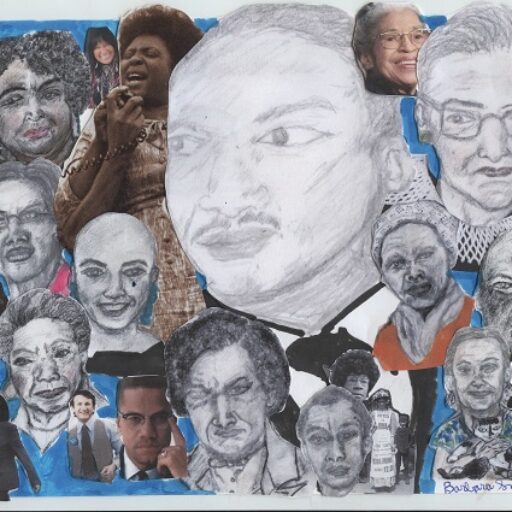“This is an historic time of great crises, but it is also exhilarating-with great opportunities, if we can seize them.”
-Darcyll Dale
Love where you live:
Environmental concerns revolving around rampant, unchecked, unplanned growth challenge our ability to protect and mediate climate disruption exacerbated by human activity such as deforestation, filling in marshes, blasting of aquifers, hill-top removal, and other practices that degrade our environment. Carefully controlled -and targeted- growth and development are part of the solution. Developers should be encouraged to re-use, re-purpose, and recycle properties that are already clear-cut with minimal site development.
Water Planning, Infrastructure, and Conservation:
How will Hamilton manage its water resources? The Ipswich River is in the top 10 most endangered rivers in the United States. Hamilton will be looking to the North Coastal Basin located in the Chebacco Lake region of Hamilton and Manchester-by-the-Sea. Towns are exploring the North Coastal Basin to relieve some of the burden on the Ipswich River, so there will be enough water for all. Hamilton will use revenue from the SWMI Grant to investigate water mitigation options. There are competing pressures from developers who want to blast the Chebacco Lake aquifer/recharge areas for years; this is called “Hill-Top Removal” – which will disturb the aquifers, in order to build roughly 50-60 ultra-luxury senior housing units on what is now pristine forestland. We must find ways to discourage that kind of flagrant, dangerous development; there are alternatives for growth and development in areas that are ripe for re-development, re-purposing, and re-imagining. This area is so precious and finite that once it is gone, it is gone forever……as the famed scientist and eminent entomologist, EO Wilson observed, destroying your forests for economic gain is akin to burning a Renaissance painting to cook a meal…….
Education Funding:
Hamilton relies mainly on property taxes to fund our Hamilton-Wenham Regional District public schools, but the 2 Towns are rapidly reaching their levy limits under Proposition 2-1/2. This is not a sustainable way to fund education and could lead to major instability; we need to work together with State and Federal counterparts to re-work and re-imagine funding formulas so that property taxes are no longer the main source for our public schools. This will take a concentrated, regional effort to act as a “force multiplier” to exert pressure and influence on the State and Federal entities. In Hamilton, the Select Board has no authority – nor the responsibility – to manage the School District and this is written in stone within the ancient 1959 HW Regional School District Agreement. One sure way to improve our School District performance is to open up the ancient and dysfunctional HWRSD Agreement so that best practices and collaboration can be codified. Everything should be on the table to create an atmosphere of trust, communication, and collaboration…..and we must be bold by using innovation, and implementing new ways of teaching and learning.
Energy Systems:
Energy systems and climate mitigation will be our most important initiative as we continue to wind down on the fossil fuel legacy systems. We must continue to convert to solar, geothermal, and wind (and other renewable systems) as rapidly as possible. New construction should adhere to best practices, and Hamilton will work with those at the State level to provide a roadmap with guardrails for all new construction – we must provide smart guidelines for future construction standards to reflect our new reality. EV (electric vehicle) Fleets for municipal and public safety departments are an easy target that we can realistically reach. Municipal rooftop solar and ground-mounted solar applications are fairly easy to accomplish and there are even more grants for many climate mitigation strategies. Hamilton has, over the past few years, made tangible progress to move toward a zero carbon state. Some of the improvements include: ground-mounted solar field on the former landfill, Community Choice Aggregation for electricity, rooftop solar panesl will go on the library , municipal compost pickup, partial Pay-As-You-Throw Program, Electric Vehicle (EV) charging stations, LED street light retro-fits, energy use reduction programs for municipal and school district buildings for heating and water heating, banning plastic bags and robust support for the Extended Producer Responsibility (EPR), which puts the onus on Producers to re-think design/packaging and this bill is making its way through legislatures on Beacon Hill. This is just the beginning…..
Entrepreneurial Initiatives:
In Hamilton, we have taken the lead on re-thinking regionalization agreements; we have opted for shorter-term, and more flexible agreements with myriad neighboring Towns which share many of our issues. Some examples are the Human Resource Departments that are shared between several Towns where costs are distributed and services are enhanced. We have worked up similar agreements regarding the Building Commissioner, IT Department-sharing, Board of Health, and we are looking for other areas to build cooperation such as sharing Local 911 Dispatch services for those Towns that are without those services. Hamilton has a state of the art 911 Dispatch Center that can serve up to 4 more Towns. Towns can keep their dispatchers in-house locally; these Dispatchers know their Towns and the people who live there.
Working together to make progress:
Finally, I would like to say a word about how we can work together to make progress. Working together without the influence of partisan politics is how we maintain our direct democracy form of self-government. Partisan politics has no place in our municipal sphere. We all need to pull in the same direction when we work together to make the Town a better place to live and work for all residents. I think we should leave the fringe politics to the state and national races, and let’s come together, and meet at the sensible center so we can make progress for the Town.
Accomplishments:
- Organized and conducted a meeting with our Senator Bruce Tarr, Representative Brad Hill, Mr William Joyce, the Executive Director of the MA Architectural Access Board and other Town leaders to address our non-compliance regarding a law called the Americans with Disability Act (ADA). Our Hamilton Town Hall has zero ADA access, and it meets no safety, fire, building, sanitation, electric, plumbing, or HVAC codes. This is a civil rights and human rights issue, and I am working with the State to find more revenue/opportunities to move Hamilton to 100% compliance with the ADA law that promotes and protects access to all government services and public accommodations by every single body.
- Worked collaboratively with Selectboard colleagues voting 5-0 to institute a “living document” that reflects the ease of changes or amendments to our Human Rights policy. Everyone is entitled to their human rights, regardless of how you feel about people personally. People will have different opinions; but all people are worthy of their human rights and human dignity. Along these same lines, I initiated and organized a September Workshop/Retreat for Selectboard members focusing on team-building, and learning how to spot and root out unconscious bias in our every-day lives. Being cognizant of how words and actions are perceived is the first step in recognizing and mediating one’s own internal biases.
- Assisted a local family with a complicated tax issue that required 2 Home Rule Petitions to be addressed by our State Legislators. The 2-step process has taken years to bring to this point. I have been persistent in my advocacy working with Rep Brad Hill and Sen Bruce Tarr, and we look forward to a final resolution for that family in 2022.
- Worked with colleagues and the Town Manager to manage our Covid response and to the spending of CARES ACT/ARPA funds in ways that benefitted the Town. We implemented policies that beefed up our Public Health Department to keep our citizens safe and healthy.
- Initiated and advocated for the replacement of a critical water shut-off valve that was located in the Grove that has the potential to leak septic waters into our post-treated water system. With Covid in the septic waters, I sounded the alarm. The valve is to be replaced this Spring using the CARES ACT funding.
- Encouraged and initiated entrepreneurial approaches toward hybrid regionalization with neighboring towns. Shared services are flexible and short-term, allowing for Towns to pivot when the incentives/grants dry up, or if agreements are no longer beneficial to the Town. This is a good way to manage negotiations every so many years to benefit the citizens of Hamilton.
- I initiated and continue to support the exploration of having a local Hamilton Fire Department Ambulance unit that would give better response times than we currently have with the private ambulance company. Public Safety Head and Fire Chief, Ray Brunet, has initiated a fact-finding team to analyze and explore the process. This is an on-going process.
- While on the Finance and Advisory Committee over 2 appointments, I was instrumental in analyzing our fee structures for the Building Department permitting process. I recommended changes that would put Hamilton on par with our counterparts, leading to an increase in revenues for that department.
- I supported the Composting Program under the leadership of Gretel Clark. This is the first such program in the State, employing forward-thinking measures that reflect the values of the community. We are now involved in working on a “Extended Producer Responsibility” policy that would require producers to bear the cost of recycling/disposal of their products and packing materials. This would save the Town the hauling, tipping, recycling, and processing expenses. Last year, Hamilton paid $281K to haul and process our recycling stream.
We, as a Board, are now engaged in the Master Planning process which will chart our pathway into the future. This comprehensive planning measure has the potential to give us a glimpse into the future of our Town and all the options available to us. This is the first of many steps as the Town decides how we chart a sustainable pathway to the future.
Executive policies adopted during my tenure on the Selectboard:
- Policy establishing the Human Rights Commission
- Organics Ban Policy
- Banner Policy
- Buy Recycled Policy
- Established the Capital Committee
- Financial Policies formed/adopted during my 2 appointments/tenure on the FinCom:
- Disbursements – August 6, 2018
- Revenue Turnover – August 6, 2018
- Travel Reimbursement – August 6, 2018
- Capital Planning – October 22, 2018
- Financial Reserves – October 22, 2018
Residents of Hamilton:
We are witness to an historic era that requires leadership, and fidelity to our fragile democracy. We have to re-imagine our future based on our new realities that will come with challenges and opportunities. I am asking for your vote on April 7th, so that I can continue to serve the People of Hamilton and seek unity rather than division.
Sincerely,
Candidate for re-election to the Select Board,
Darcyll Dale

